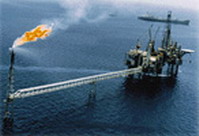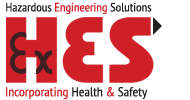 Brenntag Oil & Gas Europe recently cleaned a 140 km / 60.96 cm crude transport line at Total Refinery in Vlissingen, The Netherlands, with N-SPEC
Brenntag Oil & Gas Europe recently cleaned a 140 km / 60.96 cm crude transport line at Total Refinery in Vlissingen, The Netherlands, with N-SPEC
To perform these activities, the transport line had to be emptied and cleaned, and most importantly, the environment in the line had to be safe, meaning no danger of explosion during welding and cutting activities. The maximum allowed LEL in this respect was 10% or less.
The above had to be carried out considering following additional requirements:
- a time frame of approx. five weeks to execute the complete project;
- applying compressed air as a propelling agent to transport the pigs through the pipeline;
- minimum waste disposal;
- specific safety precautions as indicated by the client.
Visser & Smit Hanab, a pipeline construction company who was the main contractor for the complete project, called Brenntag in for the cleaning part and to achieve this low LEL within the pipeline by means of its N-SPEC® advanced chemical cleaning services. “Over the years, this product has proven to be a more effective cleaning agent and less hazardous than traditional cleaning agents,” says Mr. Verkiel.
The start-up
Prior to the actual execution of the project, Brenntag cooperated with the client to develop a Project Execution Plan, documenting all elements of the project, and a Risk Inventory and Evaluation (RIE), an analysis of all possible risks and measures to reduce them to an acceptable level for both Brenntag and the client.
The project had been split into three different phases:
- Phase 1: online pre-cleaning of the pipeline with several pigging runs;
- Phase 2: removal of the crude and offline cleaning of the pipeline with N-SPEC 50 and N-SPEC 120, in one single pigging run, followed by cutting/welding services;
- Phase 3: refilling the line with crude.
After both parties agreed on the complete set-up, Brenntag commenced the first phase of the execution.
Phase 1 - Online pre-cleaning
The first phase involved the pre-cleaning part of the operation. Lab tests indicated that N-SPEC 50, a special wax and paraffin dispersant, and N-SPEC 120, a multi-purpose cleaner, would be most effective for this type of contamination and for the total removal of hydrocarbons. Brenntag carried out the pre-cleaning online to avoid having downtime and production losses.
“The big advantage of N-SPEC 50E is that it can be processed by the refinery as a hydrocarbon and as far as experience tells us it does not disturb any of the downstream processes,” explains Mr. Verkiel.
Phase 2 – the Pig Train
The second phase of the project involved the removal of the crude and all remaining wax, paraffin and heavy carbons inside the line, totaling a volume of 40,000 cubic meters.
After the line was taken out of service and depressurized, Brenntag established a pig train, comprising four designated pigs interspersed with a column of the required chemicals and water. “Compressed air” was applied as a propelling
agent. The advantage of compressed air is less waste disposal and time needed. Compared to nitrogen, it has the advantage of no issues with cold temperatures.
Fig. 1. Pig train sketch
Collection phase
At the receiving site in Vlissingen, Brenntag created a steel dump line from the receiver to a temporary knockout vessel connected to containers. After all pigs were received, the line had to be depressurized again. During the depressurization, the LEL of the out-flowing air was measured by an independent company named Marsac at three sites: the launching site, the receiving site and the block valve station S3. The results turned out to be outstanding: all sites measured 0% LEL.
Phase 3 - Refilling with Crude
After completing all required reconstruction and necessary maintenance actions, the line had to be filled up again with crude from the MOT in Rotterdam to Total’s refinery in Vlissingen. This was achieved by using two bidi separation pigs interspersed by a column of water, approx. 24 cubic meters. For this filling procedure, the knockout vessel with demister was used again; all out-coming air was blown into the environment without any spray while the LEL of this air remained at 0%.
Conclusion
Cleaning and emptying a large crude line using compressed air can be done in a safe and economical manner with N-SPEC® cleaning chemicals. The specific properties of N-SPEC® chemicals enable the line to become totally hydrocarbon-free, which can result in a 0% LEL of the air inside the line. The correct application of the product and the right safety precautions are crucial for a successful cleaning operation.
Total and Visser & Smit Hanab were both very pleased with the performance of Brenntag and the N-SPEC cleaning products. Based on this success, Brenntag has already been approached by other companies to carry out similar projects.
About Brenntag
In 2006, Brenntag once again succeeded in underpinning its position as one of the world’s leading chemical distributors. The company recorded external sales of US$ 7.6 billion (EUR 6.1 billion). Brenntag operates more than 300 locations with over 10,000 people in 50 countries. In keeping with the company’s strong position in world markets, Brenntag is committed to providing value to its customers and suppliers through superior supply chain logistics, single sourcing and value added services. Brenntag offers an unrivalled, extensive and state-of-the-art distribution network for industrial and specialty chemicals to its suppliers and customers alike, both in Europe and the Americas.

